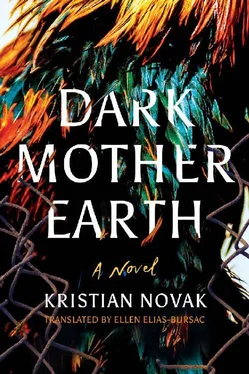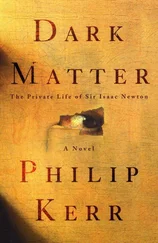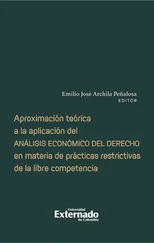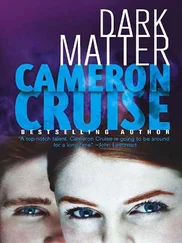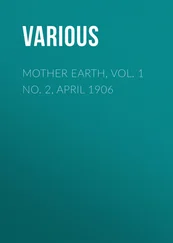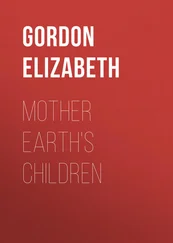I knew that the people working for the government were police, customs officers, and aunties at the bank and post office. The aunties at the stores in Čakovec seemed suspicious to me, too. They were equal parts brusque and rude. They addressed everybody as honey and touched the slices of bologna with their bare hands. There was something comforting about the single-party system and the thought that there were no alternatives… that’s roughly how I remember that government. On the other hand, we also had God, and the parish priest, the chaplain, and the sacristan all worked for God. The ministrants were working for Him, and with them was a pile of invisible players—the angels, archangels, saints, and the like. Although they told us at catechism that God was the most powerful, stronger even than Yugoslavia, there was no talk of God at school except when the teacher asked who was going to church and made a list of us (until she realized it was easier to list the two kids who weren’t). The socialist system and God had some things in common—the Young Pioneer Club for the little kids was like first communion, and the youth brigades for teenagers were like confirmation, but as far as I could see, God and the government weren’t the best of friends.
Dejan said we could ask his dad. His dad was a car mechanic and a member of the party, so he’d probably know somebody.
But what if the government hadn’t kidnapped my dad? What if he was hiding in one of the other villages along the Mura? What then?
At the time, I thought the Mura flowed in one direction, and the Drava flowed the other way, with Međimurje between them, a little like an island, and I was seriously worried that Međimurje—for I wasn’t entirely certain how heavy it was or how deep it went—might come loose and spin around like a boat with no anchor. And then Železna Gora would end up where Črna Mlaka used to be, and Črna Mlaka would be where Žalosni Klanjec had been. The only thing that made this fear bearable was that I might be able to sit in a boat without oars or a rudder in the marshy backwaters of the Mura and watch as my world spun around. Then I’d switch all the names, and I’d help everybody move to where they’d been before, and everything would be fine. After the funeral I was worried that all of Međimurje really was turning and that Dad, when he came back from Germany, might’ve gone to the wrong village, where maybe they’d taken him prisoner. At a soccer game once, I’d heard shouts that people from the neighboring village were “rotten” and “thieves,” so that seemed a genuine possibility. I asked the grown-ups when they came to Granny’s, pulled the doily off the TV screen, and watched the evening news. If they’d said, “Listen, we pretended to bury him because we have no clue ourselves of his whereabouts,” I would’ve been the happiest boy alive. I asked them whether all of Međimurje could turn around. From the semidarkness, five pairs of eyes lit by the glow of the TV turned to look at me.
“It can’t turn inside out,” someone said.
“Not inside out, I mean around itself, because of the Mura and the Drava.” None of the adults understood what I meant, but my sister did and explained that it wasn’t possible. First of all, she said, both rivers actually flowed in the same direction, and, she added, Međimurje was not an island. Everybody turned back to the evening news, and for the next few years I thought islands in the Adriatic Sea might float away and spin around, and then woe to the tourists and the street vendors who sold water pistols and swimming goggles.
There were times when I didn’t understand what the grown-ups were saying at all, the sentences seemed to roll out one after the other without anything linking them together. Everybody ought to talk in a straight line, I thought, like when Granny tells stories. I could hardly wait to be older, when one morning I’d get up and the whole world would finally make sense.
I grew up and forgot everything, so I often thought that children had no patience and couldn’t focus on anything that wasn’t entertaining, and that’s why we perceived them as self-centered. Now I remember everything. I know things aren’t like that at all. Their patience is hidden. Their devotion is boundless. In those days I thought almost exclusively about how I’d find my dad.
One Sunday I woke up early and spent the morning in a state of anxiety. When no one was watching, I snuck spoonfuls of vitamin C powder and Kraš Ekspres cocoa. At Mass, I counted everybody wearing coats, and everybody who had mustaches, to pass the time. At Sunday lunch, I could only eat a little soup, and that was enough to send me to the bathroom in a sweat. It was so painful that I promised God, there on the toilet seat, that I would never eat powdered beverages with a spoon again.
Later, at Dejan’s house, we had a contest to prove who could stare at the sun longer, and who could spin with our arms out without falling down. Then both of us felt sick so we plunked down on the steps and watched Dejan’s father disappear farther and farther under the hood of the neighbor’s Opel Kadett. He was burly and tall, with black hair and thick, fleshy fingers that looked like armrests. He spoke in such a deep voice that every other word was lost in an animal-like rumble.
“MNHMMNJcarburetorMMHNAOMNdamnitalltoMNOA. Come on, Stanko, crank up the motor.”
I was already feeling anxious, but Dejan was in no rush to talk with his dad. Jabbing around in his nose with his finger, he told me a story about how a man (“near Čakovec”) lost his son in a car crash, but then when the man got home, he saw his son sitting in the kitchen, smoking a cigarette. First he thought it was a ghost, but the body was real, just a little grimy from motor oil.
“So, what happened then?” I asked.
“His dad poured gas all over him and set him on fire.”
“Because he was scared?”
“Nope, because his son was smoking in the kitchen. And he was right. I’d have poured gas all over him myself and lit him on fire,” declared Dejan. Ever since being teased at school, he’d had this thing about over-the-top violence.
Dejan’s dad wiped his hands on a rag and came over. He pulled out a cigarette from the bottom of the pack, instead of the side with the filters, and lit it with dirty fingers.
“Hello, son, you come over to play a spell?”
I didn’t know what to say when grown-ups asked obvious questions. When a neighbor was starting their lawn mower, someone inevitably passed by with a friendly “My, my, mowing, are you?” The answer was always yes, with the obligatory addition of “a bit,” probably so the other fellow wouldn’t feel guilty about the amount of work to be done. The answer of the person passing by then had to include words of praise like “nice going” or “keep up the good work.”
“My, my, mowing, are you?”
“A bit, the grass is getting mighty tall.”
“Nice.”
Within fifteen minutes, the man who’d passed by would be revving up his mower, too. What would people say if he didn’t mow his own lawn? In the next quarter hour, three more mowers would start up around the neighborhood.
“Hello, son, you come over to play a spell?”
“I just stopped by.”
“Glad you’re here. Stay as long as you’ve a mind to, visit every day if you like.”
He was about to pass between us into the house, having nothing more to say, when Dejan finally piped up: “Dad, about criminals, if a person is a thief or steals a tractor, then the police come for ’em, right?”
“Yep, if they figure out somebody really stole something,” he said calmly, and I could tell he’d answered this question many times before.
Читать дальше
